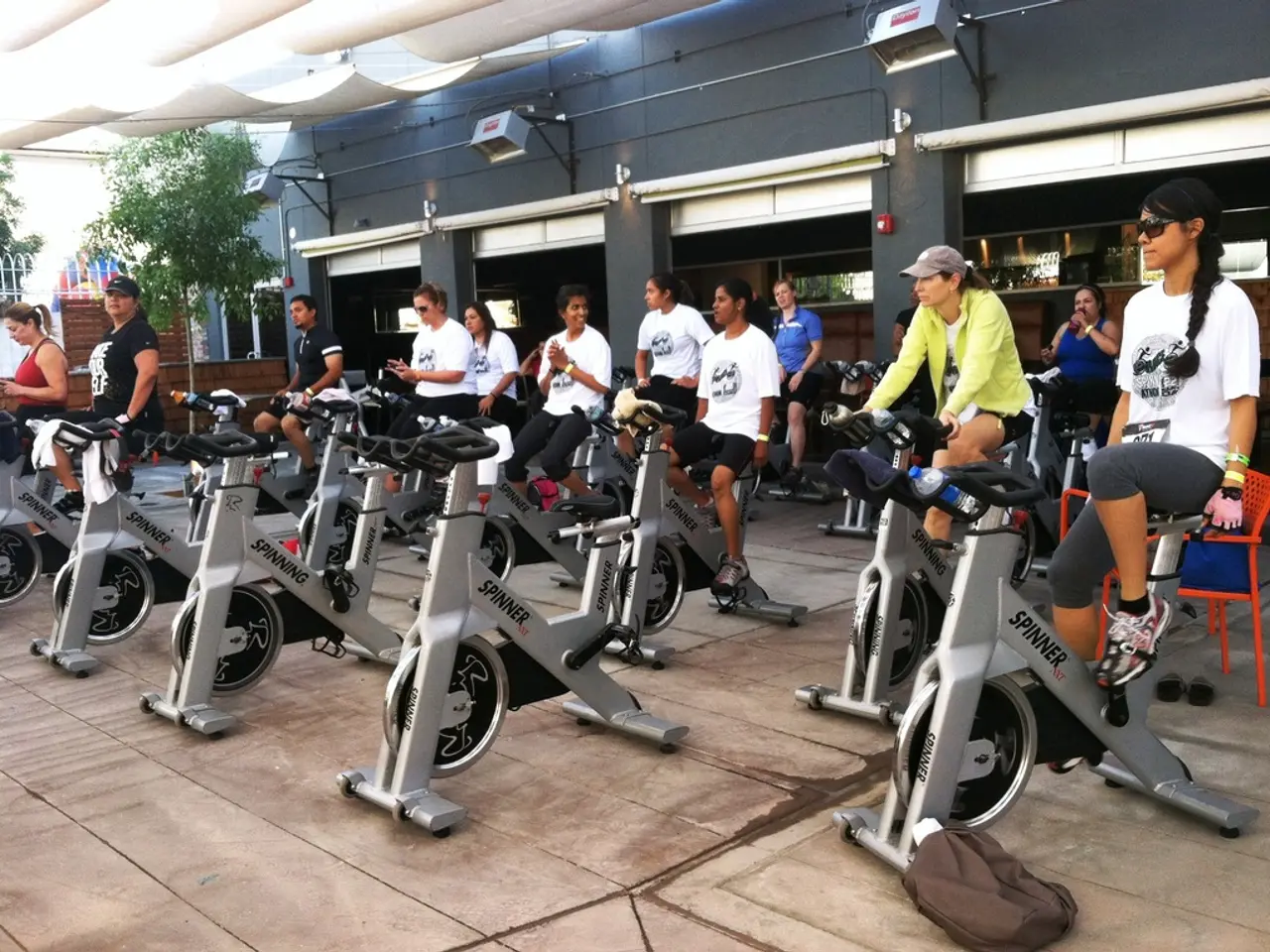Enhancing Your Protein Intake for Optimal Gym Performance - Discover the Required Amounts
In the world of sports and fitness, protein plays a crucial role in muscle growth, repair, and recovery. Here's a breakdown of protein recommendations for different types of athletes, debunking common myths and highlighting key factors to consider.
For serious weightlifters and strength athletes, the recommended daily protein intake ranges from 1.6 to 2.0 grams per kilogram of body weight. This is to support muscle repair, growth, and recovery [4]. In some intense training phases, a slightly higher intake might be beneficial [3].
On the other hand, marathon and endurance runners typically need between 1.2 to 2.0 grams of protein per kilogram per day. This range helps with muscle repair, glycogen storage, and recovery from long training sessions [1][4]. Recreational endurance athletes may consume around 1.0 gram per kilogram per day, while serious competitors might require 1.5 grams per kilogram or higher [3].
These recommendations exceed the general adult Recommended Dietary Allowance (RDA) of 0.8 grams per kilogram per day, which is a minimum for basic health and not optimized for athletic performance [1][2].
A 70 kg serious weightlifter, for example, might aim for about 112–140 grams of protein daily, while an endurance athlete of the same weight could range from 84–140 grams daily depending on training volume and intensity.
It's essential to distribute protein intake evenly throughout the day to maximize muscle protein synthesis and recovery [5]. Consuming more protein than needed provides no additional benefit and may lead to excess glucose production, potentially stressing the kidneys over time [5].
Leucine-rich protein sources are particularly beneficial for muscle growth, as they signal and drive protein synthesis. Exercise regularly increases protein needs, and low protein stores can cause our bodies to use muscle tissue for energy, which is not ideal for growth [6].
Omega-3s and vitamin D are also helpful for muscle growth and repair. However, it's worth noting that high-protein diets can sometimes overlook other food groups, such as dietary fats and fruits and vegetables [7].
The theory that protein should be consumed within 15 to 60 minutes after a workout has been debunked [8]. Instead, protein intake should be spread throughout the day, ensuring a steady drip of protein for optimal muscle growth [5].
In summary, the recommended protein intake for athletes varies based on the type and intensity of their training. It's crucial to consult with a sports dietitian or nutritionist to determine the optimal protein intake for individual needs.
| Athlete Type | Recommended Protein Intake (g/kg/day) | |-----------------------------|--------------------------------------| | Serious Weightlifters | 1.6 – 2.0 | | Serious Marathon/Endurance | 1.2 – 2.0 (higher end for intense training) | | Recreational Endurance Athletes | ~1.0 – 1.5 |
This aligns with guidelines from the American College of Sports Medicine and multiple sports nutrition resources [1][3][4].
For those following a healthy-diets and fitness-and-exercise routine, protein is crucial in supporting muscle growth, repair, and recovery, especially for athletes. Serious weightlifters and strength athletes are advised to consume 1.6 to 2.0 grams of protein per kilogram of body weight daily, while marathon and endurance runners need between 1.2 to 2.0 grams. Nutrition facts in a wellness-and-fashion shop could state that a 70 kg serious weightlifter might need about 112–140 grams of protein daily, and an endurance athlete of the same weight could range from 84–140 grams depending on training volume and intensity. It's important to note that omega-3s and vitamin D are also beneficial for muscle growth and repair, but high-protein diets might overlook other food groups like dietary fats and fruits and vegetables. In the realm of sports and science, it's been debunked that protein should be consumed within 15 to 60 minutes after a workout, and instead, it's advisable to distribute protein intake evenly throughout the day for optimal muscle growth and recovery.




